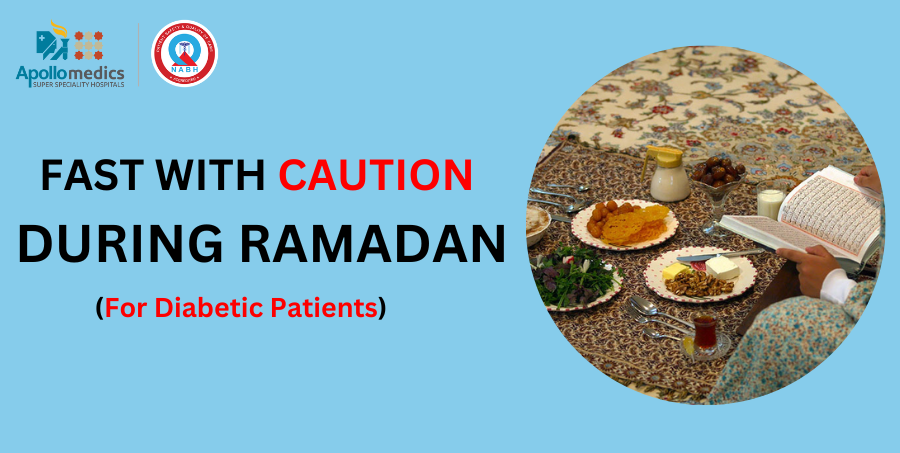A well balanced diabetes self management plan is essential before observing a fast in the holy month of ramadan.
Be well informed about the following –
- Nutrition management
- More frequent blood glucose monitoring
- Best suited excercise regimen
- Visit your diabetes expert for diabetes treatment adjustments prior to Ramadan fasts
- It is also important to be well educated about how to treat hypoglycemia ( Sugar below 70mg/dl). You can follow the rule of 15 for treating hypoglycemia.
At Suhoor (predawn meal AROUND 4:00 AM)
It is important to remember, and not to skip the suhoor meal, which is just before dawn.
High-fibre: Starchy foods like high-fibre cereals or oats, buckwheat, bulgur wheat or brown or wild rice are more slowly absorbed and have a low glycemic index.
These will help you to manage your blood sugar levels in the healthy target range while fasting.
Do not forget to hydrate yourself with milk, buttermilk, coconut water, lemon water etc as guided by your diet and diabetes experts
At Iftar Meal (breaking of fast around 7:00 PM)
Try to rehydrate yourself with sugar-free fluids – water is the best option. Avoid sugary fizzy drinks or fruit juices as these will raise your blood sugar and could make you feel thirstier. Diabetes patients can add buttermilk, coconut water, and lemon water as per their diet expert.
Medication Adjustment
In the pre-Ramadan assessment, your doctor can help minimise the risk of daytime low sugar and night-time high sugar by adjusting the dose, according to the timing or even the type of medication.
Exercise- Regular & Be Moderated
Do remain active and continue exercising, even during Ramadan. Choose a convenient time to work out. Perform mild-to-light physical activity every day before or after fasting. Avoid rigorous and high-intensity exercise during the daytime, especially in hot weather.
Blood glucose Monitoring
The use of self-monitoring of blood glucose (SMBG) should be individualised during Ramadan, especially in those at high risk of hypoglycemia requiring frequent monitoring. This is especially due to prolonged fasting hours or living in areas with a hot climate.



